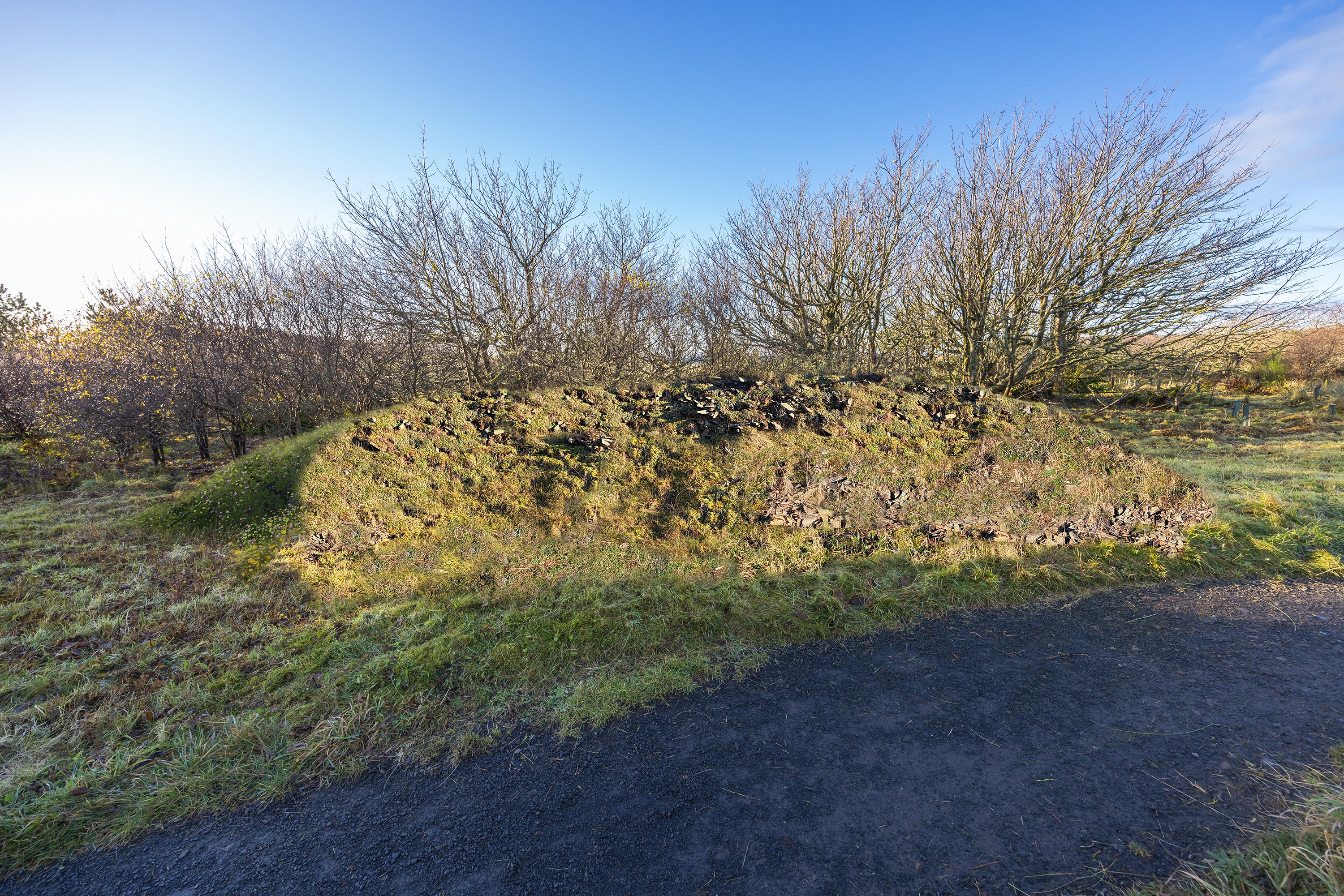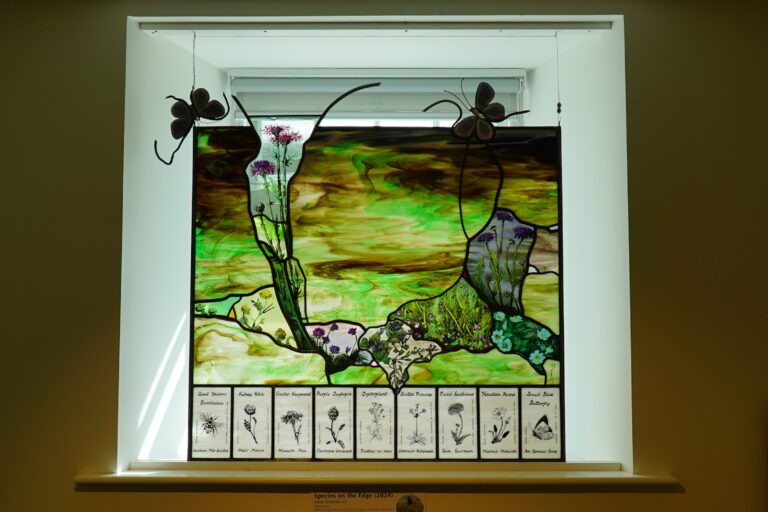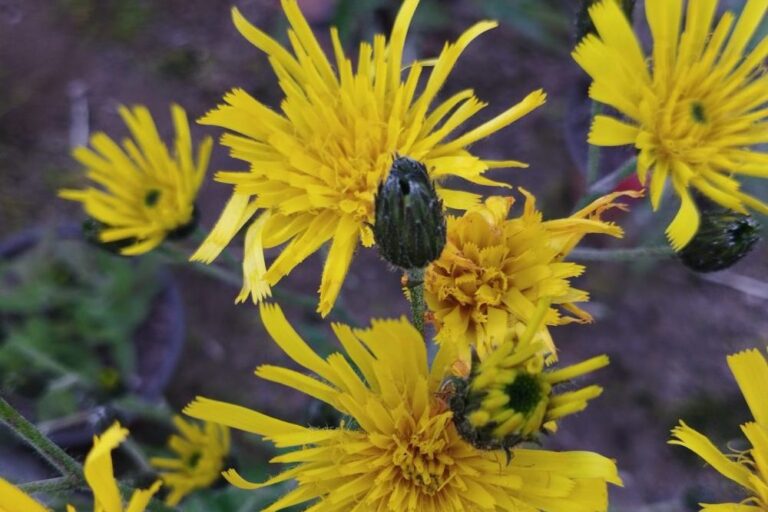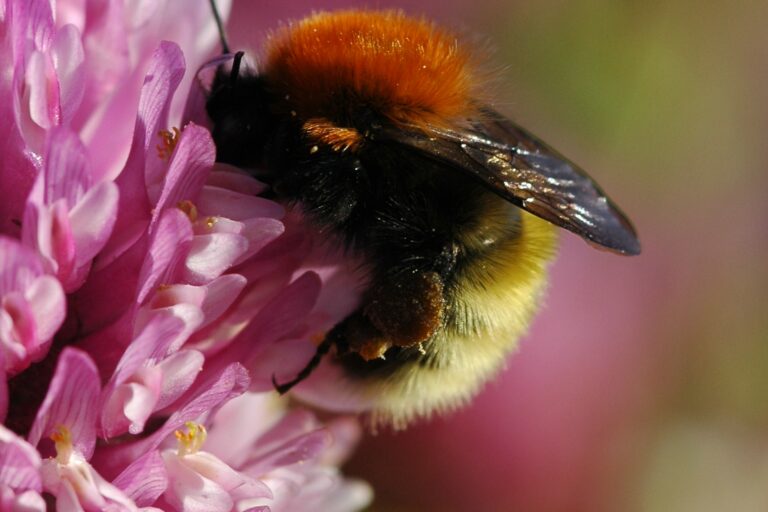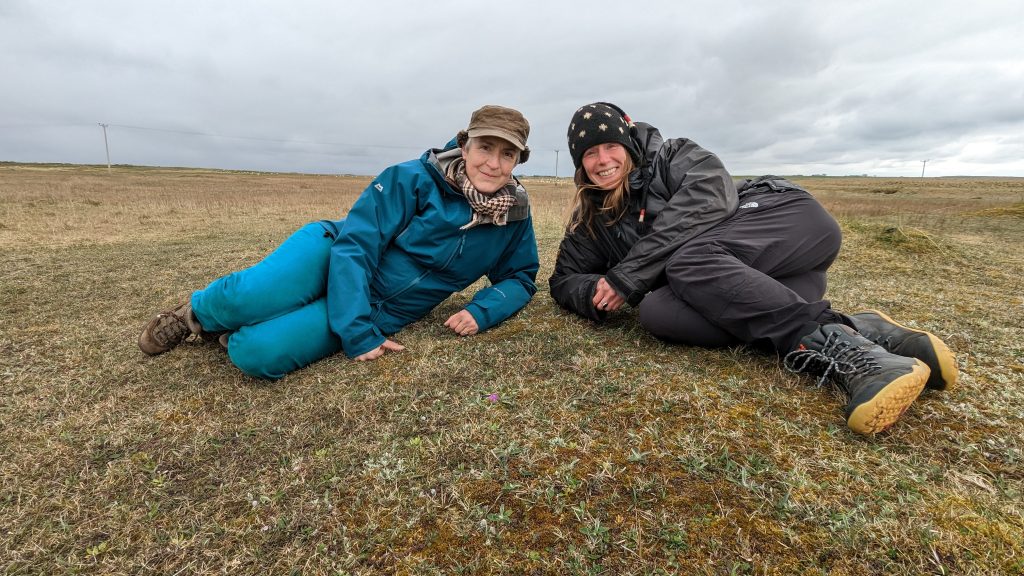
Students supporting butterflies
Our team up on the North Coast, Sarah and Louise, are delighted that the Learning for Life and Work Skills group at UHI’s Thurso campus have agreed to be our Ambassador School for the small blue butterfly in Caithness!
Supported by Caithness Environment Volunteers, we delivered an interactive session for them at the end of last year all about the threatened small blue butterfly. They loved the butterfly so much that they’ve been spreading the word about it ever since! They made keyrings, posters and information blocks and held a sale of what they’ve made, raising £200 to donate to Dunnet Community Forest to support their work on small blue habitat. They’re currently designing and creating signage to help protect the new butterfly banks that are being installed at the forest and they’ve also come up with an idea to leave painted rocks around Caithness to raise awareness of the small blues. We are so impressed and pleased with their enthusiasm – just imagine if everyone was so enthused about our wonderful biodiversity?
Following on from the success of our visit to UHI, we’re putting together a lesson plan and resource pack for use in primary schools and we will be training some of our volunteers on how to deliver it. It’s all about small blue butterflies in Caithness, so please do get in touch if this is relevant for your class and you’d like us to visit your school.

Dunnet Community Forest butterfly bank
The idea for butterfly banks came from our Small Blue Task Force event in October 2023 and grew out of the amazing work that’s been done for this species over the last decade and more by the Caithness Environment Volunteers.
Approval for two banks at Dunnet Forest was granted by NatureScot in December and work on the first one is due to start this month. If you are walking in Dunnet Forest over the next few months you may see a big pile of quarry waste and wonder what’s happening! We are making our butterfly banks out of quarry waste because we know that’s what the butterflies like over at Castlehill. Keeping the banks stoney with little soil will hopefully allow kidney vetch, the food plant of small blue caterpillars, to grow there without too much competition from grass and other plants. Duncan McLachlan made us an image using a photo from the small blue habitat at Castlehill to show what the banks could look like at Dunnet Forest (below).
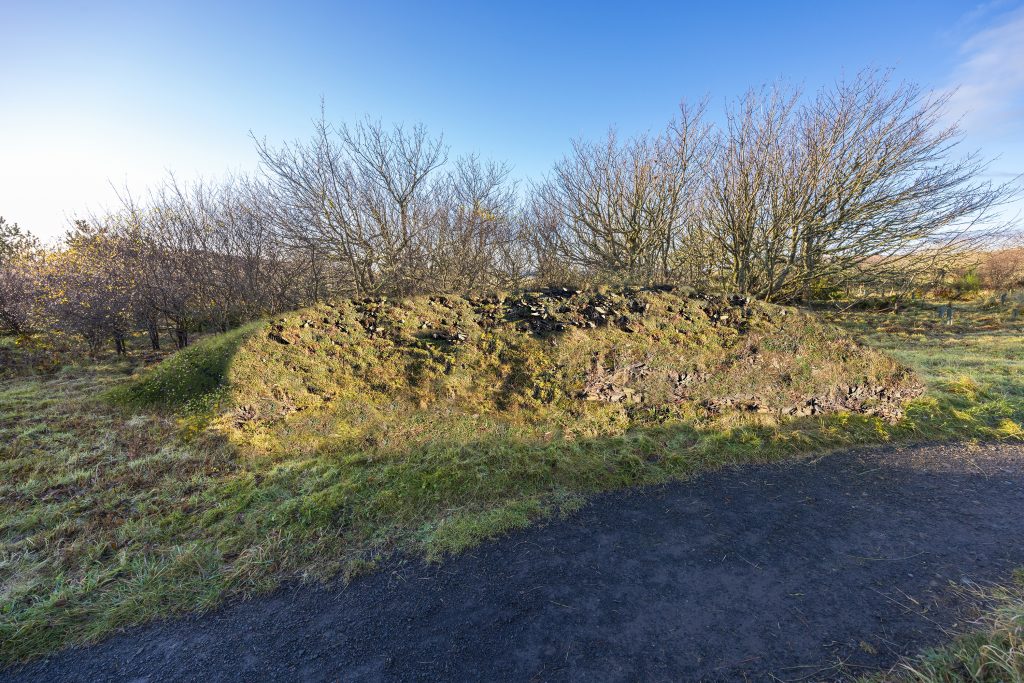
Do stop by and see what’s going on if you are passing. And if you see any butterflies please let us know! Contact sarah.bird@plantlife.org.uk
Good luck growers – spring is coming!
We are excitedly waiting for spring to arrive and have fingers crossed for our green-fingered growing volunteers to whom we sent seeds last year. If you have some of our seeds we are really rooting for you (pun intended) and would love to see photos of seedlings and plants as they grow. It’s been a wet and snowy winter so we know that conditions haven’t been the best and some seeds may not germinate – but we still appreciate your efforts.
The seeds of oysterplant, Scottish primrose and purple oxytropis were provided by the Millenium Seed Bank, which is part of the Royal Botanic Gardens at Kew, and we are thrilled to be working with them. These seeds will, we hope, produce plants for local awareness raising. Some will be planted in community gardens along the north coast, and we will take others to events for people to see and talk about.
Kidney vetch plants grown from seed collected locally in Caithness will mainly be planted on the butterfly banks (see above), as kidney vetch is the food plant for small blue butterfly caterpillars.
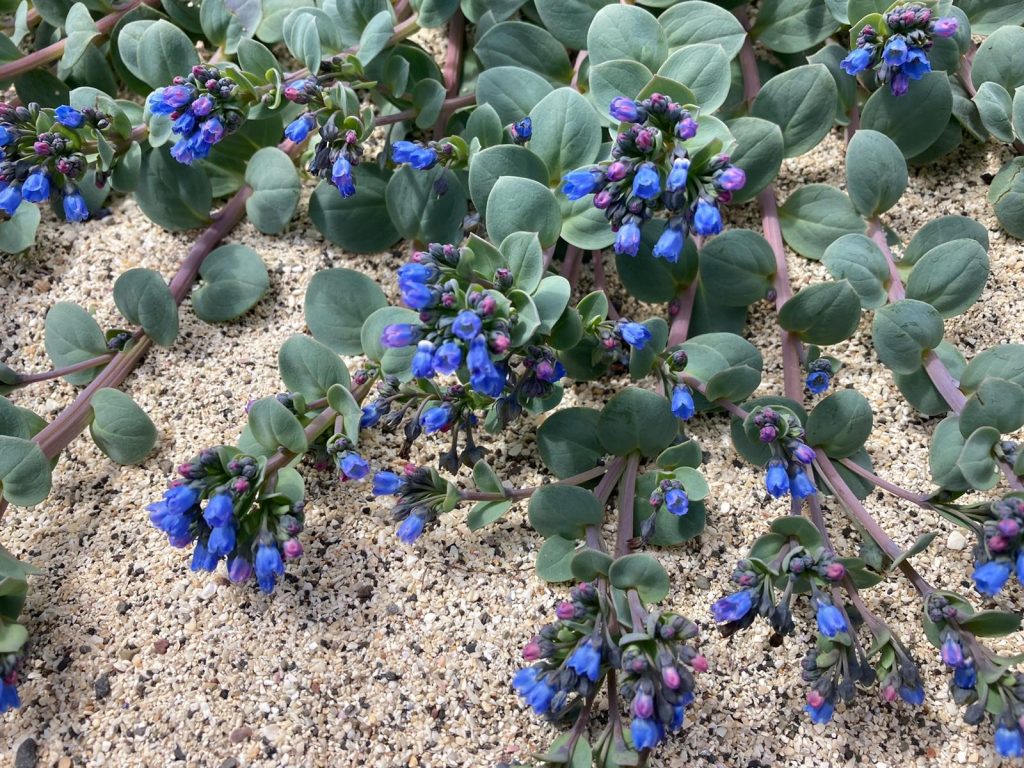
Wellbeing + Nature
This year, we’re exploring the relationship between nature and wellbeing. We want to emphasise that the restorative properties of the natural world aren’t just for the citizen scientists and wildlife recorders amongst us; nature is for everyone. We all relate to and value nature in different ways. We’re delivering several projects that offer participants different ways of connecting with nature:
- For many people, a garden is their closest green space and the place they are most likely to observe and connect with nature. We plan to work with artist Joanne B Kaar, the Strathnaver Museum and Tongue Gardening Club to experiment with traditional botanical methods of recording plants, collaboratively producing a community herbarium of our gardens.
- On the north coast our summers are short and our winters are long. It can be difficult to get our dose of nature therapy when the wind is howling, the rain lashing and it’s dark for most of the day. We’ll be working with Iain Black of Flow North Yoga over the summer to produce a nature on the north coast guided relaxation film that can help us connect with nature even when we can’t get outside. Iain will be using the film to bring nature and relaxation into all sorts of spaces over the winter. Please get in touch if you would like to host a screening for your group.
- We’ll also host a series of one-off events in Durness: connect to nature through wellbeing practices with Klara Morrison; creativity with Joanne B Kaar; and foraging with Amanda Greig Williamson of Natures Path Natural Ways.
We’ll keep you posted on the dates for these events when they’re finalised.
In addition to the above, we have a whole host of events planned, details of which can be found on the Species on the Edge Upcoming Events page. Included are: bumblebee walks; wildlife wanders; meadow management training; and a small blue celebration day. We hope you’ll be able to join us!
We also have opportunities for you to volunteer with us. Details of this can be found on the Species on the Edge Volunteer with Us page.
If you have any questions about Species on the Edge on the North Coast or you’re looking for more details on getting involved, get in touch with the team:
Sarah Bird, Senior Project Officer, Plantlife: sarah.bird@plantlife.org.uk
Louise Senior, People Engagement Officer, Plantlife: louise.senior@plantlife.org.uk
